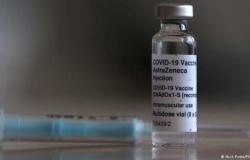
Article translated and adapted from English, originally published by the American headquarters of the Epoch Times.
A recent study published by Johns Hopkins researchers found modest declines in developmental milestones among young children in the United States during the COVID-19 pandemic.
The study, published on April 22 in JAMA Pediatrics, analyzed data from more than 50,000 children, including infants and toddlers up to age 5, to determine whether the pandemic negatively affected their developmental milestones in five areas. These areas included language and communication, problem solving, gross motor skills, fine motor skills, and personal-social behaviors.
Researchers used the American Academy of Pediatrics’ Age and Stage Questionnaire (ASQ) to assess the developmental progress of children ages 1 to 66 months. During primary care visits, they asked six questions in each of five key developmental areas to assess the child’s development.
Each question answered by a caregiver was classified as “yes”, “sometimes” or “not yet”, and respondents were asked to disclose concerns or concerns about the child’s behavior. The score determines whether a child is developing typically or needs referral to early intervention services.
The study sample included 29,277 children with ASQs only during the pre-pandemic period, 1,657 with ASQs during the pre-pandemic and disruption periods, and 19,271 children with ASQs before and during the pre-pandemic and intra-pandemic periods.
Study results
The study found significant age-specific decreases in the communication, problem-solving, and personal-social domains from pre-pandemic to intra-pandemic, with communication skills generating the greatest concern among caregivers and gross motor skills comprising the least concern. .
Communication scores decreased by approximately 3%, and personal-social and problem-solving scores decreased by approximately 2%, which would have a national impact of approximately 1,500 additional monthly referrals for services relative to the baseline.
Fine and gross motor scores remained stable between the pre-pandemic and intra-pandemic periods, although gross motor scores decreased in the disruption period compared to the pre-pandemic period. Although there were similar decreases in communication and problem-solving scores among the infants, there were no changes in personal-social scores.
Despite the findings, the authors concluded that the changes to developmental screening were only modest and proved reassuring in the short term, but “may overwhelm an already overburdened developmental behavioral pediatrics infrastructure.”
Other studies show negative impact on child development
Although data is limited, other studies have found that young children have been negatively impacted by the pandemic response and the closure of environments they would normally frequent during their early years.
In a December 2023 study published in JAMA Pediatricsresearchers who used the same ASQ as the study recently published in the same journal found that community, family and child factors affected by the pandemic contributed to delays in the socio-emotional development of young children, especially during the first year of life.
On a previous study August 2022 published on medRxiv, researchers found a “marked decrease” in cognitive performance among babies born during the COVID-19 pandemic. The researchers examined overall child cognitive scores in 2020 and 2021 and compared them to the pre-pandemic scores of children born from 2011 to 2019. They found that children born in mid-2020 had an average decrease of 27 to 37 points in cognitive performance. significantly reduced verbal, motor and general compared to children born before the pandemic.
“The results highlight that even in the absence of direct SARS-CoV-2 infection and COVID-19 disease, environmental changes associated with the COVID-19 pandemic are significantly and negatively affecting child development,” the authors wrote.
In a June 2023 editorial in Pediatric Research, researchers stated that the COVID-19 pandemic has had “significant indirect effects” on many areas of child development, including school readiness, educational attainment, socialization skills, and mental health. Notably, handwriting was a negatively affected fine motor skill because children had fewer opportunities to read and write on paper.
An exploratory study published in May 2022 by National Institute for Economic and Social Research found that 4- and 5-year-olds were less likely to meet expected levels of development in 2021 than before the pandemic, when the same children would have been 3 to 4 years old.
Survey data collected as part of the study involving 94 schools, 1,105 families and 3,253 children showed that parents and schools felt that children were harmed in socio-emotional wellbeing, communication and language development, literacy and numeracy skills upon entry to school. More than half of schools reported that children still needed support at the end of the school year.
Additionally, teachers reported an increase in behavioral problems such as biting, aggression, and inability to share among these same children.
© Copyright. All Rights Reserved to Epoch Times Brasil 2011-2024
Tags: Developmental milestones children declined COVID19 pandemic study finds childrens development affected pandemic search
--




